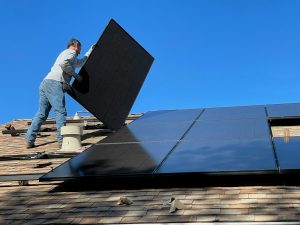Sectional title owners are used to contribute levies towards the body corporate’s administration fund, to cover the estimated annual operating costs for repair, maintenance, management and administration of the common property, including reasonable provision for future maintenance and repairs of the common property. This has not changed.
In terms of section 3(1)(b) of the Sectional Titles Schemes Management Act 8 of 2011 and Regulations, which came into operation on 7 October 2016, a body corporate has the duty to establish and maintain an additional fund, a reserve fund, sufficient to cover the cost of future maintenance and repair of the common property. As the administration fund already makes provision for estimated costs for repairs and maintenance, the purpose of the reserve fund is to make provision for unforeseen costs of maintenance and repairs, which have not been budgeted for.
The Act authorises a body corporate to collect these contributions from the unit owners, whenever necessary.
The Act and Regulations do not prescribe the minimum value of a reserve fund. It is determined in the Act that the reserve fund should be “reasonably sufficient to cover the cost of future maintenance and repairs of the common property (for the coming financial year)”.
How much does the unit owners have to contribute towards the reserve fund? The minimum amount of the annual contributions by the body corporate towards the reserve fund is determined by the Regulations. If, at the end of a financial year, the remaining funds in the reserve fund are less than 25% of the value of the past year’s administrative fund contributions, then the body corporate is required to collect and contribute to the reserve fund an amount equal to least 15% of the value of the coming year’s administrative fund budget.
If the remaining funds in the reserve fund are equal to or higher than the past year’s administrative fund contributions, no reserve fund contribution would be required. If, at the end of the financial year, the remaining funds in the reserve fund are less than 100% but more than 25% of the value of the past year’s administration fund contributions, then the contribution to the reserve fund must be at least equal to the amount budgeted to be spent on repairs and maintenance to the common property in the coming financial year.
The contribution to the reserve fund can be collected as levies from the unit owners, and therefore, an increase in the owners’ levies of between 15% and 25% annually can initially be expected, until adequate reserves have been built up.
By when has the reserve fund have to be established? The Regulations do not require that a reserve fund of 25% of the levy budget be established immediately upon the operation of the Act. It merely requires the body corporate to immediately start a fund and start collecting contributions from the owners so that it is slowly built up towards the end of the year to be “reasonably sufficient to cover the cost of future maintenance and repairs of the common property (for the coming financial year)”. In practice, the minimum required contribution that need to be made during the first financial year after the coming into operation of the Act, would be 15% of the value of the coming year’s administrative fund budget, as in most circumstances, the existing reserve funds would have values below 25%. This means that the body corporates should, during the coming financial year, raise an additional amount of 15% above the existing levies from each owner.
The budgets for the new financial year would only be approved by the members of the body corporates at the next annual general meetings. Only once the budget for this coming year is drawn up, the 15% reserve fund contribution can be calculated and approved.
In the past, owners were charged special levies for the cost of unforeseen future maintenance and expenses in regard to the common property. The requirement for a reserve fund has the effect that such costs are actually collected systematically upfront, and would in the long run reduce the charging of unexpectedly high special levies. This can be seen as a method of compelled saving. The contributions towards the reserve fund are not money thrown into the water. It is an investment in the maintenance of your property, being money actually saved to be applied towards unexpected costs of the upkeep of the buildings and common property of the sectional scheme. Only if the reserve fund is empty, and there are necessary expenses which were not budgeted for, which cannot be delayed, the trustees can charge the sectional title owners with a special levy to meet these extra unforeseen expenses.
Any buyer in a sectional scheme should, before an offer to purchase is signed, request the agent or seller to provide him with a copy of the body corporate’s financial statements, including the annual administrative fund and reserve fund budget, with a breakdown of the levy contributions that is expected to be made by the owner. In this way the buyer would be in a better position to decide whether he would be able to afford, not only to buy the property, but to keep it.










